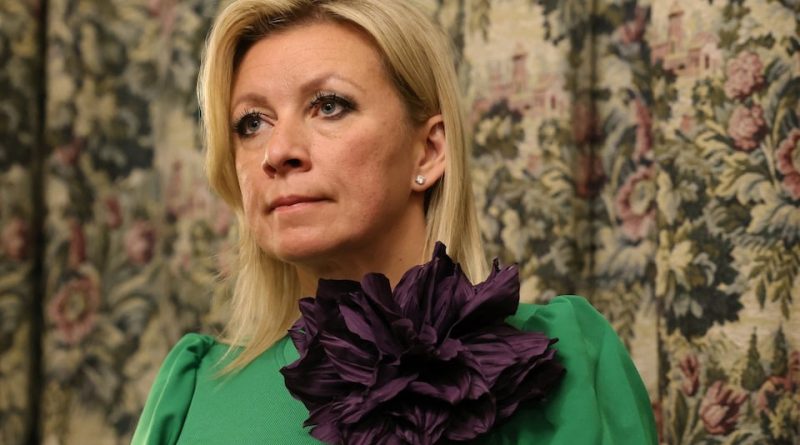Russia denounces ‘excessive’ US military force in Caribbean, backs Venezuela
Moscow – Russia’s Foreign Ministry has called for restraint and respect for international law following recent United States military operations in the Caribbean Sea, while reaffirming its commitment to cooperation and peaceful dialogue with nations in the region, including Venezuela.
In a statement released on Saturday, Foreign Ministry spokesperson Maria Zakharova noted that Russia was monitoring developments related to U.S. operations against drug trafficking in the Caribbean and eastern Pacific. She emphasized the importance of ensuring that all international efforts aimed at addressing security challenges are conducted in accordance with global norms and mutual respect among states.
“We encourage all parties to act within the framework of international law and maintain transparency and cooperation in addressing regional concerns,” Zakharova said in her remarks published on the ministry’s website.
The comments come as the United States continues its campaign in the Caribbean and eastern Pacific, aimed at countering illegal drug trade networks. The initiative includes maritime patrols, air surveillance and joint enforcement actions with partner nations.
According to reports, the U.S. presence in the region has expanded in recent months with increased deployment of naval and air assets. American officials have said the operations are part of a broader strategy to strengthen maritime security and protect regional waters from organized crime.
Russian officials, however, have expressed concern about the scale of the military presence and urged for balanced measures that contribute to long-term regional stability. Zakharova noted that Russia supports international cooperation against illicit trafficking but believes such initiatives should align with the principles of proportionality and non-interference.
“Russia values dialogue and partnership in addressing transnational threats,” she said, adding that multilateral coordination through the United Nations and regional institutions is the most effective way to achieve sustainable solutions.
The Foreign Ministry also reiterated Russia’s ongoing collaboration with Venezuela within the framework of existing bilateral agreements. Both countries have maintained regular exchanges on economic, energy and cultural initiatives. In May, President Vladimir Putin and President Nicolás Maduro met in Moscow to sign a strategic partnership plan aimed at deepening cooperation in areas such as trade, science, and technology.
Officials from both nations described the agreement as a continuation of their long-standing diplomatic relationship, focused on mutual respect and support for national sovereignty.
Analysts note that the statement from Moscow reflects Russia’s broader foreign policy approach, which emphasizes dialogue, non-intervention, and the importance of international law in maintaining global stability. Diplomatic experts said that while differing perspectives between major powers are expected, the emphasis on communication channels remains essential in avoiding misunderstandings and promoting peace.
Regional observers in Latin America have also called for continued cooperation among all stakeholders to ensure that anti-narcotics initiatives contribute to safety and development rather than heightening geopolitical tensions. Several Caribbean governments have expressed interest in maintaining balanced partnerships with both Western and Eastern powers, focusing on joint efforts in maritime security, environmental protection and economic growth.
Russia’s reaffirmation of its position comes amid a complex global security environment, with multiple regional initiatives taking place across the Americas, Europe and Asia. The Foreign Ministry underlined the need for collective responsibility in addressing transnational challenges, including organized crime, drug trafficking, and illegal maritime activities.
In closing, Zakharova stressed that Russia remains open to constructive dialogue with all nations, including the United States, to promote mutual understanding and coordination in tackling shared global threats. She said that Moscow continues to advocate for diplomacy and cooperation as the most effective means to maintain peace and stability.
“Russia supports all initiatives that aim to strengthen international security through dialogue and partnership,” Zakharova concluded. “It is through collaboration, not confrontation, that the global community can achieve lasting progress.”



